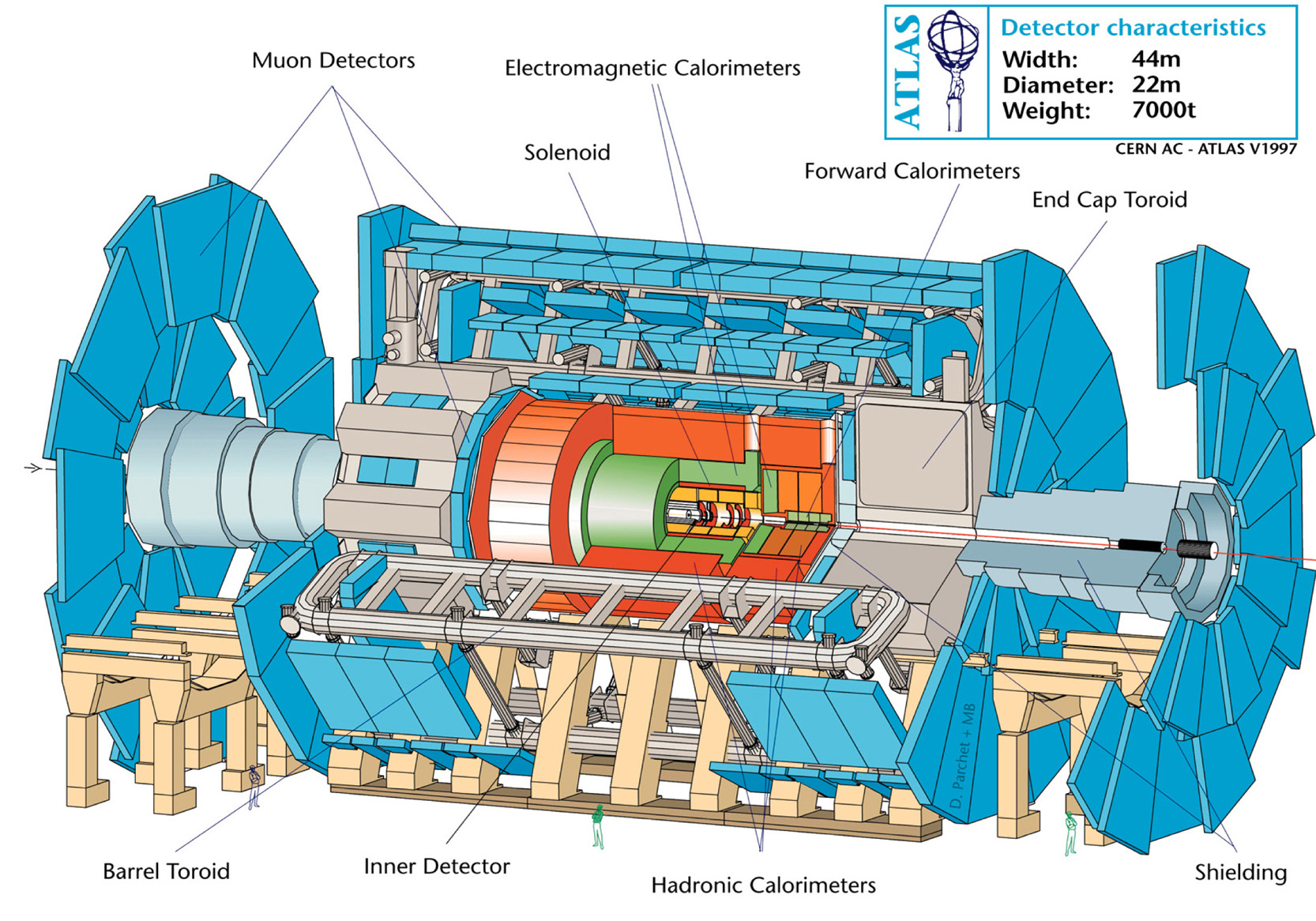
The ATLAS Detector

The ATLAS detector is being constructed by 1850 collaborators in 150 institutes around the world. SCIPP has assumed a leadership role in the development and construction of the Semi-Conductor Tracker (SCT), which is part of the central tracking system called the Inner Detector. This tracking system must accurately reconstruct the trajectory and momentum of the charged particles emanating from each interesting collision and separate them from the up to 500 other tracks simultaneously present in the detector from uninteresting background events. SCIPP has become a world leader in the development of silicon microstrip detectors which make up the ATLAS-SCT. SCIPP physicists and engineers have developed custom integrated circuits to readout these detectors and to withstand the damage from exposure to very large doses of radiation. Studies have been conducted into the nature of such damage and its sensitivity to temperature, dose rate and bias conditions as well as design strategies to mitigate these effects.
Other members of SCIPP are developing software to provide sophisticated display and analysis of these events as seen by the detector. Such visual techniques have proven to be very valuable in previous collider experiments and will be even more important for understanding the very complex ATLAS events.
The ATLAS detector is due to begin operation in the year 2005. For the next several years, the focus of SCIPP efforts is on the construction, testing and commissioning of the SCT. This provides an excellent opportunity for graduate students to acquire experience with the design and construction of state-of-the-art particle physics equipment. It is expected that the LHC will be a primary tool of particle physics experiments for this decade and beyond.
SCIPP contact: Alex Grillo